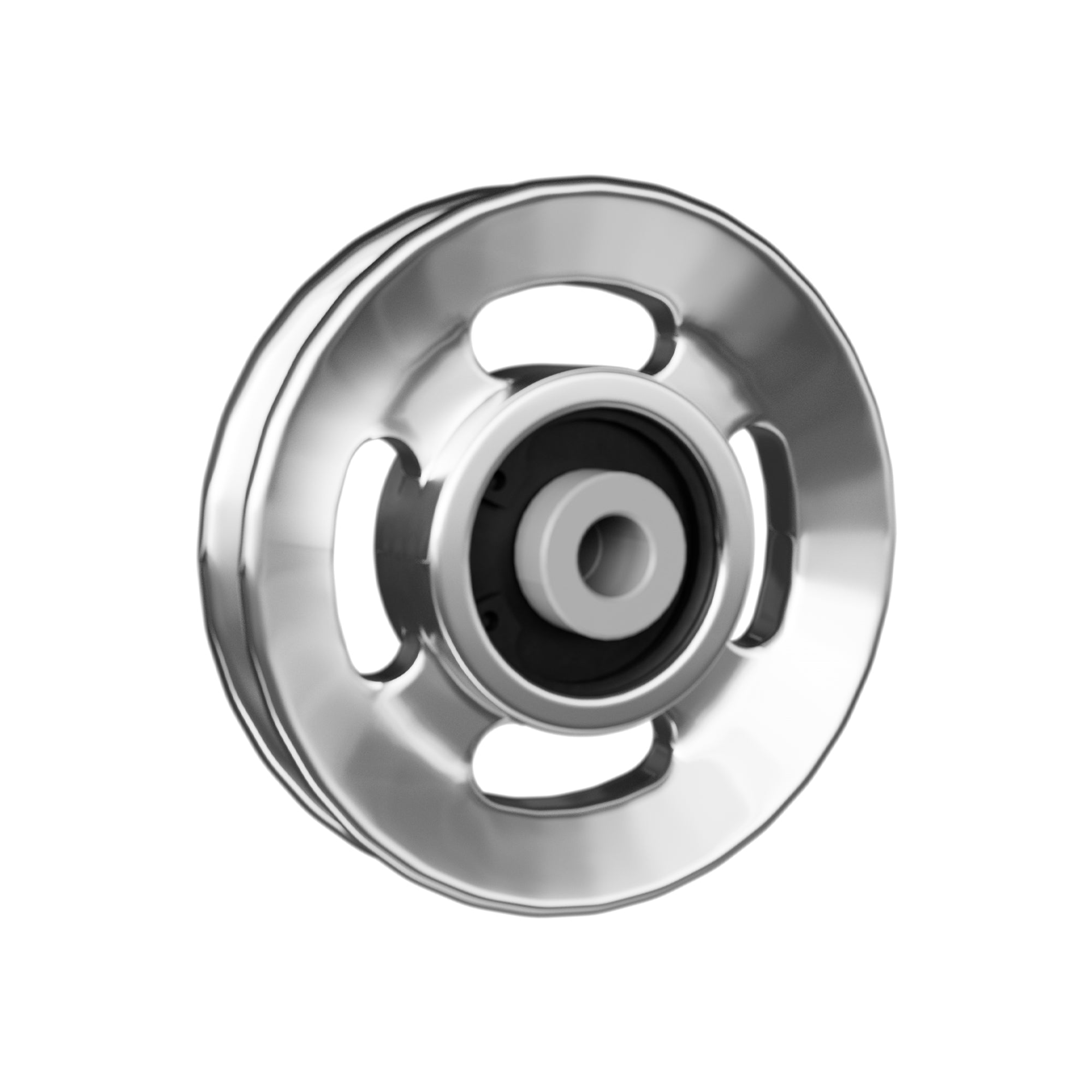When it comes to building a strong, well-defined back, few exercises are as effective—and underrated—as the neutral grip lat pulldown. Often overlooked in favor of wide-grip or underhand pulldowns, this variation not only offers unique biomechanical benefits but also provides a joint-friendly alternative that targets the lats, biceps, and mid-back muscles with excellent control and minimal strain.
What Is a Neutral Grip Pulldown?
A neutral grip pulldown involves pulling a cable bar or handle toward your upper chest with your palms facing each other (rather than facing forward or backward). This grip mimics the natural alignment of the wrists and shoulders, reducing stress on the joints and encouraging a more comfortable range of motion.
Unlike the traditional pronated (overhand) or supinated (underhand) grips, the neutral grip activates a more balanced combination of the latissimus dorsi, rhomboids, rear delts, and biceps, making it ideal for both hypertrophy and joint health.
Benefits of Neutral Grip Lat Pulldowns
-
Joint-Friendly Mechanics
The neutral hand position places less strain on the shoulders, elbows, and wrists. It’s especially helpful for lifters who struggle with shoulder impingement or elbow discomfort during traditional lat pulldowns. -
Targeted Lat Activation
While all pulldown variations hit the lats to some degree, the neutral grip places the arms in a position that better isolates the mid-lat fibers. This can help with achieving a broader, thicker back. -
Improved Range of Motion and Control
The more natural pulling angle promotes better contraction at the bottom of the movement, with more control throughout the eccentric (lowering) phase.
Grip Width Matters: Neutral vs. Wide
A wide neutral grip lat pulldown shifts the emphasis slightly higher on the lats and teres major, giving the upper back a broader look. Meanwhile, a closer neutral grip tends to involve more bicep and mid-back engagement. Neither is "better," but each suits different goals:
-
Wide Neutral Grip: Better for lat width and upper back thickness
-
Standard Neutral Grip: More joint-friendly and better for full-range lat development
-
Cable Neutral Grip Pulldown: A good all-rounder when using D-handles or multi-grip bars
If you're torn between neutral grip vs wide grip, test both and see which provides a better mind-muscle connection. I personally cycle between the two in different training blocks to avoid overuse injuries and keep progression steady.
Attachments Make a Difference
Your choice of attachment can significantly affect how the movement feels:
-
Neutral Grip Lat Pulldown Bar: Usually has parallel handles spaced about shoulder-width. Best for standard execution.
-
Wide Neutral Grip Attachment: Curved bars or specialty handles allow for a broader grip, targeting upper lat fibers more directly.
-
Cable Neutral Grip Attachment: Using two D-handles on a standard lat pulldown cable setup allows for a custom grip width and natural wrist rotation.
If you're training at home, investing in a neutral grip pulldown attachment can expand your cable machine's versatility with minimal cost or space.
Muscles Worked: What Does the Neutral Grip Pulldown Target?
This variation hits multiple upper-body muscles at once:
-
Primary: Latissimus dorsi (lats)
-
Secondary: Rhomboids, rear delts, lower traps
-
Tertiary: Biceps brachii, brachialis, brachioradialis
Compared to a regular lat pulldown, the neutral grip encourages more even distribution across the back and arms, making it a great accessory for pull-up strength or rowing improvements.
My Experience: Why I Switched to Neutral Grip
Years ago, I found myself avoiding pulldowns because of shoulder discomfort. No matter the angle or weight, I’d get a nagging impingement that lingered for days. Switching to a neutral grip pulldown was a game-changer. Not only did the pain vanish, but I also noticed a more intense lat contraction. Within weeks, I started pulling more weight and finally saw growth in the mid-back region I’d previously struggled to develop.
Final Tips for Better Results
-
Use a Full Range of Motion: Pull all the way to your upper chest and control the eccentric phase.
-
Don’t Go Too Heavy: Keep the focus on the lats, not your ego.
-
Pause at the Bottom: A 1-second pause boosts activation and mind-muscle connection.
-
Train With Variety: Alternate between neutral, wide, and underhand grips for complete back development.
Conclusion
The neutral grip lat pulldown is a powerful, joint-safe addition to any training program. Whether you're aiming to build width, protect your joints, or improve pull-up strength, this movement deserves a regular spot in your back day routine. Start with a moderate weight, focus on clean form, and rotate your grips throughout your training blocks to unlock your full upper-body potential.
















































Leave a comment
This site is protected by hCaptcha and the hCaptcha Privacy Policy and Terms of Service apply.